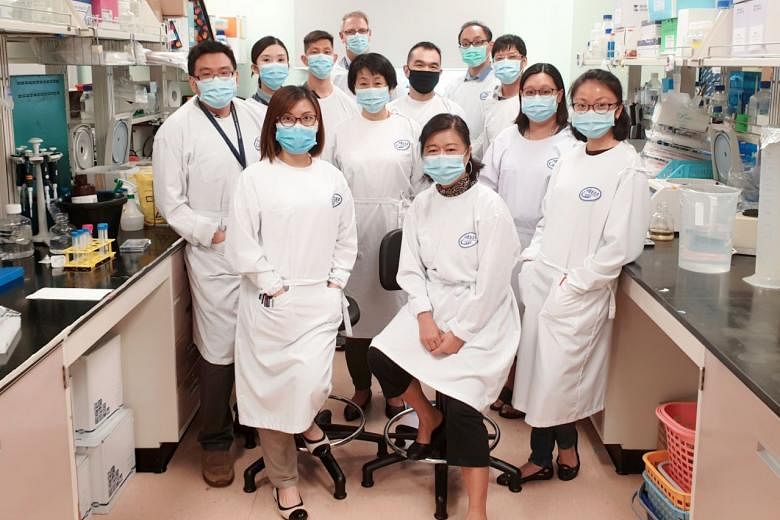Even before Singapore's first Covid-19 case was detected on Jan 23, the local research community was moving to pivot quickly to Covid-19 research, developing a response on all fronts: from manufacturing test swabs to building the country's testing arsenal.
This was possible only because of a strong foundation in science.
Said Professor Low Teck Seng, chief executive of the National Research Foundation (NRF): "Our national response to Covid-19 builds on the broad base of scientific capabilities that Singapore has built up over the years."
He added: "For instance, our capabilities in infectious diseases and diagnostic test kit development have supported our national testing and virus surveillance efforts.
"This has enabled the RIE (research, innovation and enterprise) community to swiftly pivot and scale up its response as needed."
To support research efforts, the Ministry of Health and NRF launched a $45 million Covid-19 research fund under the RIE plan for this year. It has gone towards research areas such as the modelling of viral transmission, developing novel therapies and translating research outcomes into products and solutions.
Singapore's efforts have paid off.
A vaccine is now in the pipeline, with the first shipments expected in the first quarter of next year.
Dubbed Lunar-Cov19, it is co-developed by Duke-NUS Medical School and American pharmaceutical firm Arcturus Therapeutics.
Preliminary findings from early-stage trials indicate positive responses in both safety and human immune response.
So far, no serious side effects have been observed, and phase three clinical trials should start this month.
As at the end of last month, local researchers have contributed more than 1,100 scientific publications to an international pool of knowledge on Covid-19, with research beginning as early as in January.
Duke-NUS Medical School announced on Jan 30 that its team of scientists had successfully cultured the virus from an infected patient's sample, making the Republic the third country in the world outside of China to do so.
In February, the first made-in-Singapore diagnostic kit, Fortitude, which can detect the Covid-19 virus with high accuracy, was rolled out locally. It is now in use at 13 hospitals and laboratories here, as well as internationally.
Other scientists, too, have pivoted from their areas of expertise to develop diagnostic test kits.
Professor Peter Preiser, associate vice-president for biomedical and life sciences at Nanyang Technological University, redeployed his platform technology, initially used to differentiate between types of malaria parasites, to detect proteins produced by the Sars-CoV-2 virus.
This helped him develop two test kits: an antigen rapid test and a serology test.
To meet local testing demands, researchers from the National University of Singapore linked up with Temasek Foundation and produced three different swab designs through 3D printing and injection moulding.
A total of 7.5 million 3D-printed swabs and around five million injection-moulded swabs have been produced this year.
The team is on track to meet the demand for 60 million injection-moulded swabs, which they will deliver throughout next year.
Therapeutics research into Covid-19 is also showing promising results.
Last Friday, local biotechnology company Tychan announced that it is conducting the final phase of clinical trials for its antibody T027, which could help Covid-19 patients recover faster.
Even as work continues at full throttle, more is being planned.
Part of a $25 billion RIE plan for the country over the next five years includes investment in a national effort to guard against future threats from infectious diseases.




